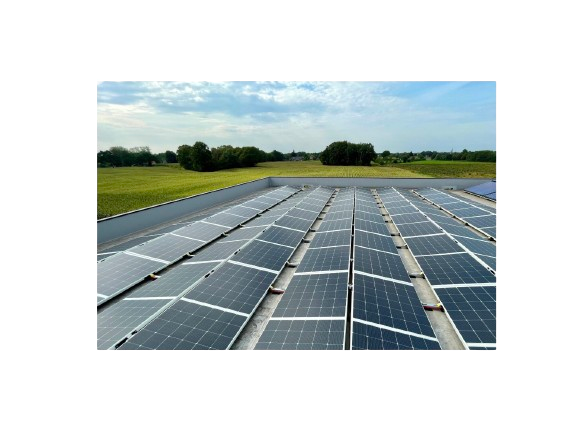

Solarge had a goal in mind, and they succeeded. Circular solar panels – lighter, fully recyclable and with a significantly lower footprint than alternatives. With their innovative product, Solarge is helping to realise the energy transition without having to deplete our resources. To deliver on the circular promise of their products, they use digital product passports (DPPs) – C_passport® from Cirmar. By digitally capturing material composition, end-use solution and derived impact, they help their customers make better, more sustainable choices.

A product is only circular if you can dismantle and reuse it. That is why Solarge has already taken into account the next use phase of its solar panels, or underlying components and materials, in the design process. From the honeycomb panel to the encapsulant, cells and frontsheet, each layer is carefully designed to facilitate reuse or recycling. Certain parts can be reused after an initial cycle of use without recycling. For all parts that do need to be recycled, Solarge records how this works. In this way, together with their end-user and the rest of the chain, they realise the circular potential of their solar panels and preserve materials.
As a customer, you want to know what you are choosing. That is why Solarge made a comparison in C_dashboard® between its own product and a market average alternative. This takes into account that Solarge panels are recyclable and that they have saved a lot of weight through smart material choices. C_dashboard® then not only compares the material composition of the two products, but also calculates the impact in a number of KPIs, such as CO2 emissions, energy consumption, water consumption and material saved.
DPPs are a means by which companies can contribute to the transition to a circular economy. As a company, they contribute to material conservation and enable you to generate insight into the impact of products and the underlying materials, which you can then use to make improvements. At the same time, it is a tool that allows you to inform customers about your product and provide them with all the information needed to realise the circular potential of products. To put that into practice, you need information. Basically, you can already create a C_passport® if you know the material composition and end-use solution of a product. Many companies that market products have a ‘bill of materials’ for each product. This describes which materials are in a product and how they are divided into components. Using this bill of materials, you can easily create C_passports®. The Cirmar database contains an extensive list of materials, linked to impact data. These impact data are automatically generated by the application when the material composition and end-of-use solution are filled in.
Realising the full circular potential of solar panels requires more than just material composition and impact data. That is why Solarge adds the instructions and explanations to C_passport® that are needed to make the product circular in practice. This way, the whole chain, including the end customer, works together to make the transition to a circular economy.